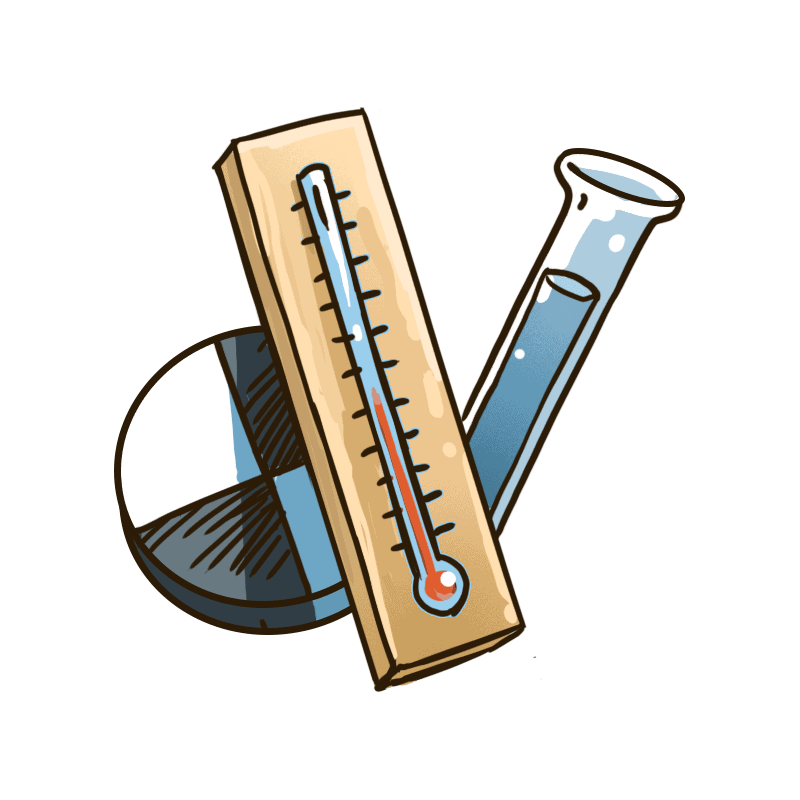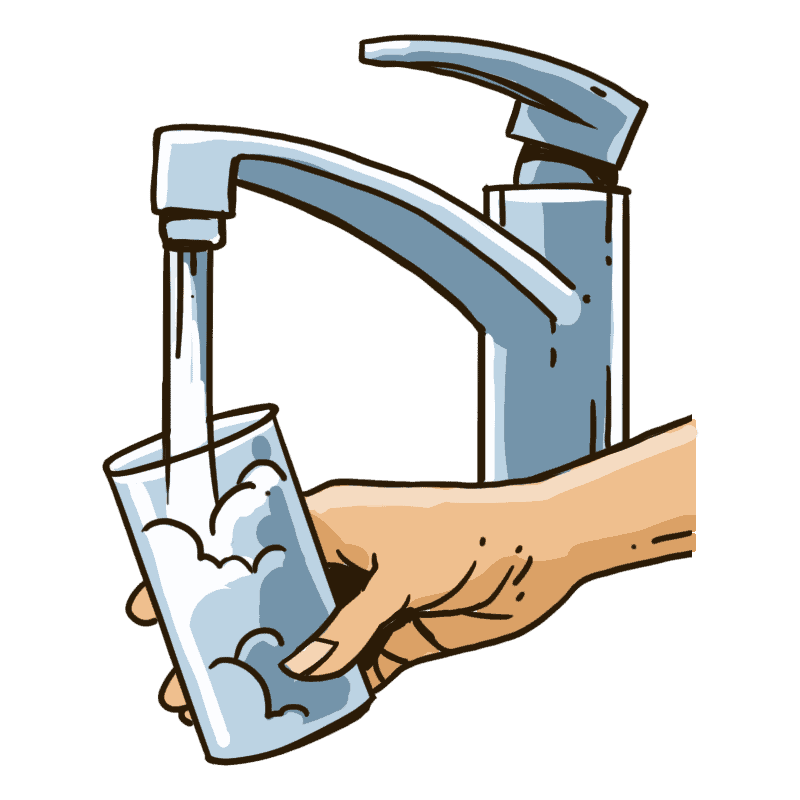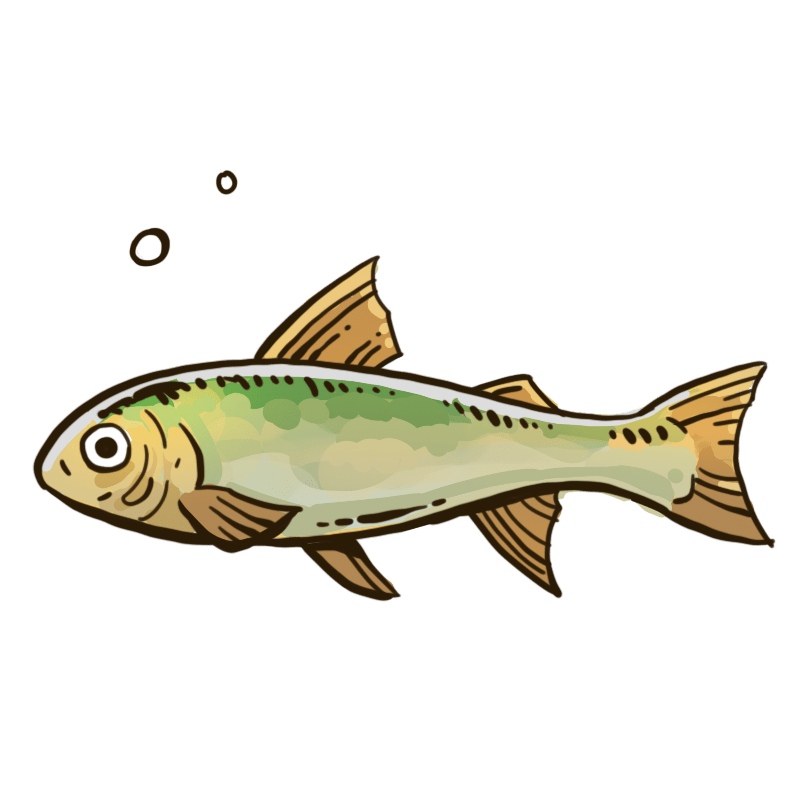CIPEL's 4th action plan is structured around three main strategic axes, 12 themes and 29 actions

ACTION PLAN 2021-2030
Scientific actions in one click :
- Monitoring and predicting algal blooms
- Prospective study ofhydrology in the watershed
- Improve understanding of the overall functioning of the lake ecosystem in a context of climate change
- Assess the presence and impact of microplastics and define a coordinated monitoring strategy
- Develop and implement a monitoring strategy for micropollutants in water and sediments
- Organize an annual meeting for amateur and professional anglers
- Assess the impacts and limits of thermal uses of surface water bodies, in the context of climate change
- Develop and implement a strategy to control phosphorus inputs

Drinking water resources
MONITOR AND PREDICT ALGAL BLOOMS
Cyanobacteria are phytoplankton species that are potentially toxic to humans. Their rapid proliferation (bloom) in Lake Geneva can impact drinking water production. Most of these species have a benthic life cycle, which is favored by improved water transparency.
High-frequency measurements and the identification of areas favorable to benthic recruitment of cyanobacteria are needed to complete CIPEL's annual monitoring program, in order to better understand and increase the reliability of algal bloom predictions.
Climate change
PROSPECTIVE STUDY OF HYDROLOGY IN THE WATERSHED, INCLUDING A HYDRAULIC FLOW DIAGRAM
Changes in the hydrological regime of the Rhône, Lake Geneva's main tributary, and other tributaries are to be expected as a result of climate change (increased glacier melt, precipitation regimes). These changes are likely to cascade into changes in the way the lake functions.
The aim is to study changes in the hydrology of the lake's tributaries over the coming decades (quantities of water entering the lake, their distribution over the year, evaporation, distribution within the lake, temperature), in order to anticipate potential changes in the lake's functioning.
Climate change
IMPROVE UNDERSTANDING OF THE OVERALL FUNCTIONING OF THE LAKE ECOSYSTEM IN THE CONTEXT OF CLIMATE CHANGE
Climate change is likely to alter the nature and intensity of interactions between the various components of the lake ecosystem. These changes will lead to an evolution of state variables that will influence the ecological state of Lake Geneva.
This action aims to assess the sensitivity of biotic and abiotic interactions to meteorological and hydrological forcings, and to acquire the knowledge to anticipate the impacts of climate change, thus paving the way for an adaptation of CIPEL's objectives and future actions.
Waste and microplastics
QUANTIFY THE PRESENCE OF MICROPLASTICS IN LAKE GENEVA AND IDENTIFY THEIR SOURCES; DEFINE A COORDINATED WATERSHED-WIDE MONITORING STRATEGY, INCLUDING POTENTIAL IMPACTS
The omnipresence of microplastics in Lake Geneva has already been demonstrated, while their impact on aquatic fauna is still unclear. Despite these uncertainties, CIPEL believes that the presence of microplastics in Lake Geneva should be reduced as much as possible.
In recent years, public opinion, the media and politicians have taken up the subject, and a better understanding of the situation on Lake Geneva with regard to this emerging issue will enable CIPEL to respond to the questions posed.
Micropollutants
DEVELOP AND IMPLEMENT A MONITORING STRATEGY FOR MICROPOLLUTANTS IN WATER, SEDIMENT AND FISH
Numerous drug residues, pesticides and industrial products are present in the waters of Lake Geneva, sediments and fish. The environmental risk of impregnation of these compartments by micropollutants needs to be assessed more precisely.
CIPEL will take advantage of the advances made in several fields (chemical, ecotoxicological and bioindication analysis) to better interpret existing chemical data or data acquired during future analysis campaigns, and to better assess the trajectory of the ecological status of the lake and its tributaries.
Fish resources
ORGANIZATION OF A JOINT ANNUAL MEETING BETWEEN CIPEL AND THE INTERNATIONAL COMMISSION IN CHARGE OF THE FISH MANAGEMENT PLAN FOR AMATEUR AND PROFESSIONAL ANGLERS
Fishing in Lake Geneva is an emblematic ecosystem service for the lake, and an important social, economic and heritage issue. Catches depend on the ecological state of the lake ecosystem and its evolution, as well as on exploitation levels and regulations.
The aim of an annual meeting is to share knowledge about the lake and the quality objectives to be achieved, so that anglers can take note of this information and also share their own perception of the lake with CIPEL scientists.
Thermal use
ASSESSING THE IMPACTS AND LIMITS OF THERMAL USES OF SURFACE WATER BODIES IN THE LÉMAN WATERSHED, IN THE CONTEXT OF CLIMATE CHANGE
The need to reduce our use of fossil fuels has given rise to projects based on the thermal exploitation of the waters of Lake Geneva. These projects have positive effects in terms of energy transition, but they can also have undesirable effects on the lake.
Assessment of the potential impacts and limits of these projects will lead CIPEL to examine the applicable regulatory requirements and their ability to manage any undesirable effects, in order to propose a strategy in this area and issue an appropriate recommendation if necessary.
Phosphorus
DEVELOP AND IMPLEMENT A STRATEGY TO CONTROL PHOSPHORUS INPUTS
Phosphorus levels in the lake have fallen since the 1980s, as a result of a proactive policy to reduce domestic and non-point source inputs. But the appearance of algae blooms shows that this reduction is not enough.
Growing demographic pressure and climate change make it essential to control phosphorus inputs in order to maintain, or even improve, the lake's ecological status, which contributes to the quality of the services it provides.
Review and outlook
The assessment of CIPEL's 3rd action plan between 2011 and 2019 highlights two key elements: the fragile equilibrium of the Lake Geneva ecosystem, and the increasingly marked impact of climate change on the processes at work in this ecosystem.
This assessment calls for continued, and even intensified, control of inputs to the lake, both in terms of nutrients and micropollutants. and micropollutants, to maintain monitoring efforts at a high level, and to continue developing knowledge of the processes at work in the lake.


ACTION PLAN 2021-2030

Follow-up campaigns
Find out more about CIPEL's various monitoring campaigns aimed at improving our knowledge of Lake Geneva in order to better preserve it.













